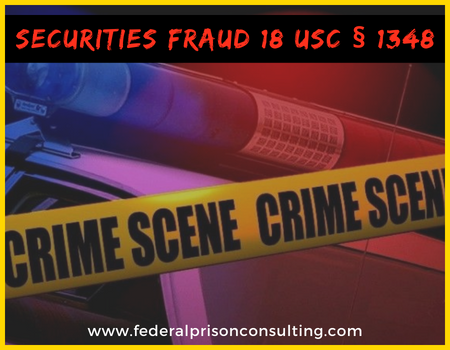Over 50 Years’ Combined Experience
Federal Crimes
securities fraud charges & sentencing - 18 USC 1348

Securities fraud refers to any intentional misrepresentation or omission of material facts made by individuals or entities in connection with the sale or purchase of securities. The primary goal of securities fraud is to deceive investors and manipulate the market for personal gain. Securities fraud can take various forms, such as insider trading, Ponzi schemes, market manipulation, and false financial statements. Insider trading involves using non-public information to buy or sell securities for personal profit.
Ponzi schemes are fraudulent investment schemes that often include wire fraud and mail fraud and promise high returns to investors, but pay those returns using the funds of later investors rather than profits from legitimate investments. Market manipulation involves making false statements or engaging in other deceptive practices to manipulate the market to benefit a specific individual or entity. False financial statements are statements that misrepresent the financial condition of a company, causing investors to make decisions based on inaccurate information.
Securities fraud harms investors and the integrity of the financial system. It can lead to significant financial losses for individuals and even contribute to broader economic instability. To prevent securities fraud, regulatory bodies such as the Securities and Exchange Commission (SEC) enforce laws and regulations governing the sale and purchase of securities. Investors can also protect themselves by conducting due diligence and seeking advice from reputable financial professionals.
In conclusion, securities fraud is a serious crime that can have far-reaching consequences. It is essential for individuals and regulatory bodies to work together to prevent and punish those who engage in such illegal practices.
Who Investigates Securities Fraud
The Securities and Exchange Commission (SEC) is the primary regulatory body that investigates securities fraud in the United States. The SEC has the power to investigate, prosecute, and sanction individuals or entities that violate federal securities laws. It works closely with other law enforcement agencies, such as the FBI, Department of Justice and Secret Service, to ensure the integrity of the financial markets and protect investors.
Penalties for Securities Fraud
The penalties for securities fraud can be severe and may include both civil and criminal sanctions. Civil penalties may include fines, disgorgement of profits, and injunctions against further violations. Criminal penalties may include imprisonment, fines, and forfeiture of assets. The severity of the penalties often depends on the scope and nature of the fraud, as well as the harm caused to investors and the broader financial system. In addition to legal penalties, individuals and entities found guilty of securities fraud may also face reputational damage and loss of investor trust, which can have long-term financial consequences.
As Seen On:










